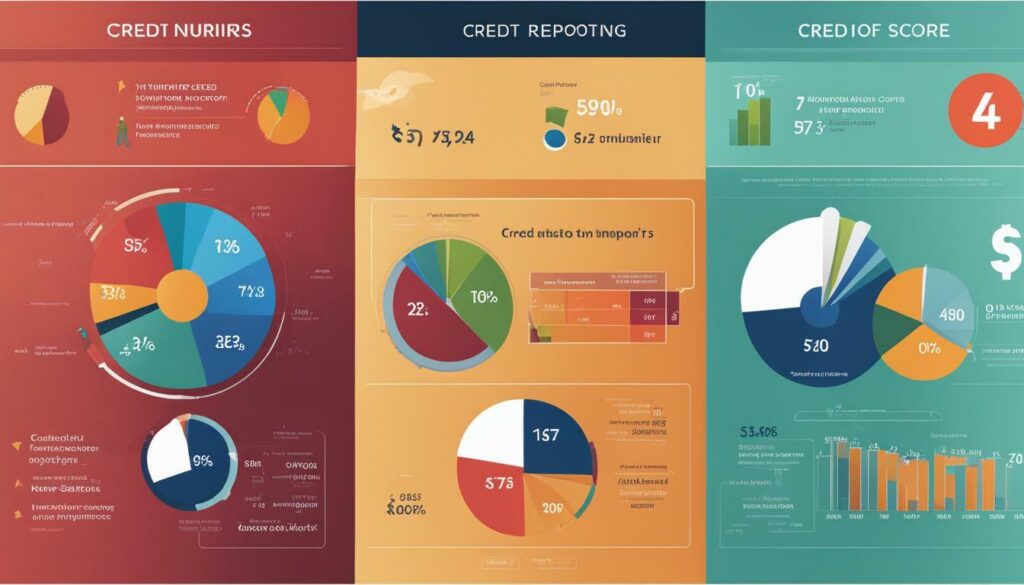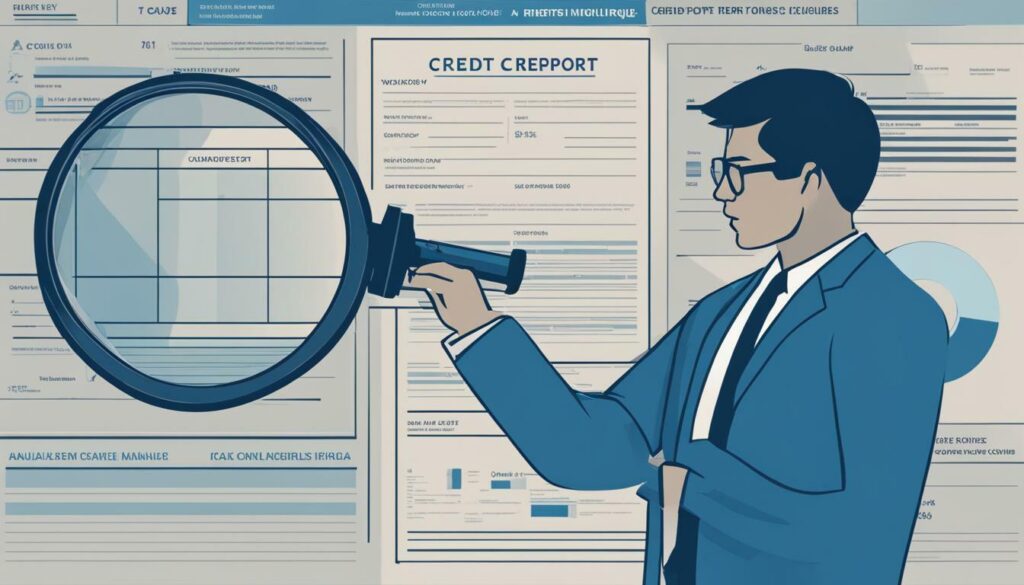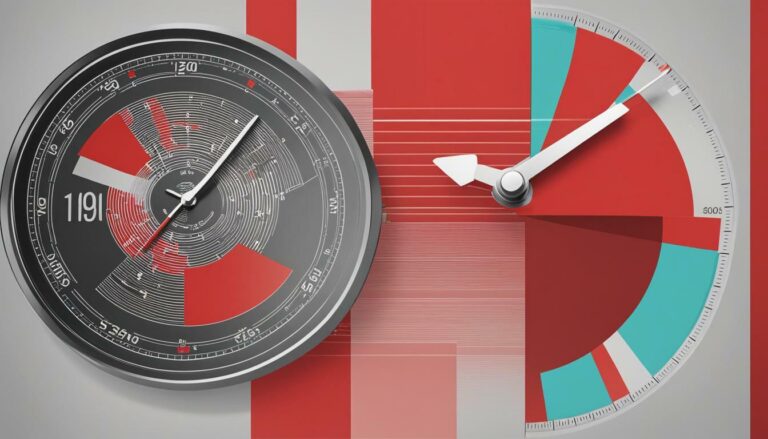Understanding the Role of Credit Inquiries in Scoring

Credit inquiries play a significant role in determining your credit score and overall creditworthiness. By understanding the role of credit inquiries in scoring, you can make informed decisions to manage your credit health effectively.
There are two types of credit inquiries: hard inquiries and soft inquiries. Hard inquiries occur when lenders or companies check your credit report as part of the loan application process. They can temporarily lower your credit score, but typically only affect it for one year. Soft inquiries, on the other hand, do not impact your credit score and can result from checking your own credit or receiving promotional credit card offers.
It’s important to be aware of the impact of hard inquiries and to plan before shopping for loans. Multiple hard inquiries for auto or mortgage loans are often counted as one inquiry within a certain time period, but this exception does not apply to other types of loans like credit cards.
Key Takeaways:
- Understanding credit inquiries is crucial for managing your credit health.
- Hard inquiries occur when lenders or companies check your credit report during the loan application process.
- Hard inquiries can temporarily lower your credit score, while soft inquiries have no impact on your score.
- Planning ahead before applying for loans can help minimize the impact of hard inquiries.
- Exceptions apply to auto and mortgage loans, where multiple hard inquiries may be counted as a single inquiry within a certain time period.
By understanding credit inquiries and planning ahead, you can make informed decisions and protect your credit score.
🚨 TUIC Errors + Low Credit Score?
CreditScoreIQ helps you build credit faster by reporting utility bills to all 3 bureaus—while you dispute errors.
Start Building Credit Today →Types of Credit Inquiries
Credit inquiries are categorized into two types: hard inquiries and soft inquiries. Understanding the difference between these inquiry types is crucial for comprehending their impact on your credit score.
Hard inquiries occur when lenders or companies check your credit report as part of the loan application process. These inquiries are typically initiated by you when applying for a new credit card, mortgage, or auto loan. They can also be initiated by potential landlords or employers when conducting background checks. Hard inquiries are recorded on your credit report and can temporarily lower your credit score.
On the other hand, soft inquiries do not impact your credit score. They can result from checking your own credit, such as when you review your credit report or monitor your credit score. Soft inquiries can also occur when you receive pre-approved credit card offers or when potential employers conduct background checks that do not affect your creditworthiness.
By understanding the impact of hard inquiries and knowing the difference between hard and soft inquiries, you can make informed decisions to protect your credit score and manage your credit health effectively. Planning ahead before shopping for loans and being aware of exceptions, such as those for auto and mortgage loans, can help minimize the impact of hard inquiries on your credit score.
| Type of Inquiry | Impact on Credit Score |
|---|---|
| Hard Inquiry | Temporarily lowers credit score |
| Soft Inquiry | No impact on credit score |
“Understanding the impact of credit inquiries is essential for managing your credit and maintaining a strong credit score. By being knowledgeable about the different types of inquiries and planning ahead, you can make informed decisions to protect your creditworthiness.”
Conclusion
In conclusion, credit inquiries play a significant role in scoring and managing your credit. Hard inquiries can temporarily lower your credit score, while soft inquiries do not impact it. By understanding the types of credit inquiries, planning ahead, and being aware of exceptions for specific loans, you can make informed decisions to protect your credit score and maintain a healthy credit profile.

Hard inquiries are initiated by lenders or companies when assessing your creditworthiness for loan applications. When you apply for a loan or credit card, the lender will typically check your credit report to evaluate your risk as a borrower. These hard inquiries can have a temporary impact on your credit score, but their effect is usually minimal and lasts for a short period.
It’s important to note that each hard inquiry can lower your credit score by a few points. However, the impact is often offset by positive credit behaviors, such as making timely payments and keeping your credit utilization low. Plus, the impact of hard inquiries diminishes over time, typically only affecting your credit score for one year.
While hard inquiries can lower your credit score temporarily, it’s essential to understand that they are a necessary part of the loan application process. Lenders use this information to assess your creditworthiness and determine the terms of your loan. So, don’t be discouraged from applying for credit when needed, as long as you’re managing your credit responsibly.

In summary, hard inquiries play a role in determining your creditworthiness when you apply for loans or credit cards. They may have a temporary impact on your credit score but typically only affect it for one year. By maintaining good credit habits and understanding the role of hard inquiries, you can make informed decisions to protect your credit score and financial health.
Soft Inquiries and Their Impact on Your Credit Score
Soft inquiries do not affect your credit score and can arise from activities such as checking your own credit or receiving promotional credit card offers. Unlike hard inquiries, which are triggered when lenders check your credit report during the loan application process, soft inquiries are typically generated when you personally request your credit report or when credit card issuers perform pre-approved credit checks. These inquiries provide you with valuable information and insights into your credit health without any negative impact on your credit score.
It’s important to note that soft inquiries are not visible to lenders or other parties who may assess your creditworthiness. They are considered informational inquiries and are not factored into credit scoring models. This means that you can check your own credit as often as you like or take advantage of promotional credit card offers without worrying about damaging your credit score.
To give you a clearer understanding of the difference between hard and soft inquiries, here is a visual representation:
| Inquiry Type | Impact on Credit Score | Visibility to Lenders |
|---|---|---|
| Hard Inquiries | Temporarily lowers credit score | Visible to lenders |
| Soft Inquiries | No impact on credit score | Not visible to lenders |
By familiarizing yourself with the distinction between hard and soft inquiries, you can make informed decisions about when and how to check your credit, and also gain a better understanding of what activities may impact your credit score. Remember, managing your credit effectively involves being aware of the impact of credit inquiries and planning ahead to protect your credit score.

By planning ahead, you can minimize the impact of hard inquiries on your credit score and credit report. Hard inquiries occur when lenders or companies check your credit report as part of the loan application process. These inquiries can temporarily lower your credit score, but typically only affect it for one year. It’s important to be aware of the impact of hard inquiries and to take steps to protect your credit.
One way to minimize the impact of hard inquiries is to carefully manage your credit history. Lenders consider your credit history when evaluating your creditworthiness, so maintaining a positive credit record can help offset the temporary dip in your credit score. Make sure to pay your bills on time, keep your credit card balances low, and avoid opening multiple new accounts within a short time frame.
Timing your loan applications is another key factor in minimizing the impact of hard inquiries. Try to space out your applications for credit, such as loans or credit cards, to avoid multiple hard inquiries within a short period. This can help reduce the negative impact on your credit score. Additionally, be cautious when shopping for loans or mortgages, as multiple inquiries from different lenders for the same type of loan may be treated as a single inquiry within a certain time period.
| Loan Type | Time Period | Counted as One Inquiry? |
|---|---|---|
| Auto Loans | 14-45 days | Yes |
| Mortgage Loans | 14-45 days | Yes |
| Credit Cards | N/A | No |
Understanding the impact of hard inquiries is essential for managing your credit effectively. By planning ahead, maintaining a strong credit history, and being mindful of timing, you can make informed decisions and protect your credit score in the long run. Remember, a good credit score is crucial for securing favorable terms on future loans and demonstrating your creditworthiness to lenders.

Auto and mortgage loans have certain exceptions when it comes to the impact of multiple hard inquiries on your credit score. Understanding these exceptions is crucial for managing your credit health effectively. When you apply for an auto loan or a mortgage loan, it is common for multiple lenders to check your credit report within a short period of time. However, unlike other types of loans, these multiple hard inquiries are often treated as a single inquiry by credit scoring models.
This exception is in place because it is understood that borrowers may shop around for the best interest rates and loan terms when purchasing a car or a home. Consolidating multiple inquiries into one helps to minimize the impact on your credit score. This is especially beneficial for consumers, as it allows them to compare loan offers without worrying about the potential negative effects on their credit.
Exception for Auto Loans
Let’s take a closer look at how this exception works for auto loans. Suppose you visit several car dealerships and apply for financing at each one. Each dealership will likely check your credit report in order to determine your eligibility for a loan. Normally, each inquiry would be considered a separate hard inquiry and could potentially lower your credit score. However, under this exception, all the inquiries made within a specific time frame, typically around 14 to 45 days, are counted as a single inquiry. This means that regardless of how many dealerships you visit and how many inquiries are made, it will only have a minimal impact on your credit score.
This exception for auto loans allows you to shop around and compare loan offers from different dealerships without worrying about damaging your credit. It provides flexibility and peace of mind, knowing that your credit score won’t be negatively affected by multiple inquiries. It’s important to note that this exception may vary slightly depending on the credit scoring model used by lenders, so it’s always a good idea to check with them directly for specific details.
| Loan Type | Time Frame | Impact on Credit Score |
|---|---|---|
| Auto Loans | 14 to 45 days | Counted as a single inquiry |
By understanding and utilizing the exceptions for auto and mortgage loans, you can confidently shop for the best financing options without worrying about the impact on your credit score. Remember to always be mindful of your overall credit management and plan ahead before applying for any loans. By making informed decisions, you can protect your credit score and maintain a strong credit profile.

Having a clear understanding of credit inquiries is crucial for evaluating your creditworthiness and maintaining a solid credit score. Credit inquiries refer to the instances when lenders or companies check your credit report as part of the loan application process. By comprehending the impact of credit inquiries, you can make informed decisions to effectively manage your credit health.
There are two types of credit inquiries: hard inquiries and soft inquiries. Hard inquiries occur when you apply for a credit card, loan, or mortgage, and the lender checks your credit report. These inquiries can temporarily lower your credit score. However, they typically only affect your score for one year. On the other hand, soft inquiries do not impact your credit score. They can result from checking your credit yourself or when you receive promotional credit card offers.
It’s important to be aware of the impact of hard inquiries on your credit score and plan ahead before shopping for loans. Multiple hard inquiries for auto or mortgage loans are often counted as one inquiry within a certain time period. This exception, however, does not apply to other types of loans such as credit cards. By understanding credit inquiries and planning ahead, you can make informed decisions and protect your credit score.
| Key Points | Impact on Credit Score | Duration |
|---|---|---|
| Hard Inquiries | Temporary decrease | One year |
| Soft Inquiries | No impact | N/A |

In summary, understanding credit inquiries is essential for assessing your creditworthiness and maintaining a strong credit score. By differentiating between hard and soft inquiries, planning ahead, and making informed decisions, you can protect your credit score and effectively manage your credit.
Making Informed Decisions and Protecting Your Credit Score
By making informed decisions and implementing effective credit management strategies, you can protect your credit score and ensure a healthier financial future. Understanding the impact of credit inquiries on your credit score is a crucial step towards achieving this goal.
When it comes to credit inquiries, it’s important to differentiate between hard inquiries and soft inquiries. Hard inquiries occur when lenders or companies check your credit report as part of the loan application process. These inquiries can have a temporary negative impact on your credit score, as they indicate that you are seeking new credit. However, it’s important to note that hard inquiries typically only affect your credit score for one year.
On the other hand, soft inquiries do not affect your credit score. They can happen when you check your own credit report or receive promotional credit card offers. These inquiries are not related to credit applications and are generally harmless. However, it’s still important to be mindful of the number of soft inquiries you have, as excessive inquiries can raise red flags for potential lenders.
Planning ahead is crucial to minimize the impact of hard inquiries on your credit score. Before applying for loans, it’s wise to research and compare different lenders to find the best terms and conditions. By doing so, you can limit the number of hard inquiries and choose the most credit-friendly options for your financial needs.
It’s worth mentioning that there are exceptions when it comes to auto and mortgage loans. Multiple hard inquiries for these specific types of loans are often treated as a single inquiry within a certain time period. This exception does not apply to other types of loans, such as credit card applications. Therefore, it’s important to consider this when planning your loan applications.
By understanding the role of credit inquiries, planning ahead, and being proactive in managing your credit, you can make informed decisions that protect your credit score. This, in turn, paves the way for a healthier financial future and opens up opportunities for better interest rates and credit options. Take the necessary steps today to ensure a strong credit standing for tomorrow.

Understanding the role of credit inquiries in scoring is crucial for managing your credit health and maximizing your creditworthiness. As discussed, there are two types of credit inquiries: hard inquiries and soft inquiries. Hard inquiries occur when lenders or companies check your credit report as part of the loan application process. While they can temporarily lower your credit score, they typically only affect it for one year.
On the other hand, soft inquiries do not impact your credit score and can result from checking your own credit or receiving promotional credit card offers. It’s important to be aware of these distinctions and understand the impact of hard inquiries on your credit report.
Planning ahead before shopping for loans is essential to minimize the impact of hard inquiries. By timing your loan applications and understanding how certain types of loans are treated differently in terms of credit inquiries, you can make informed decisions and protect your credit score.
It’s also worth noting that there are exceptions for auto and mortgage loans when it comes to credit inquiries. Multiple hard inquiries for these specific loans are often counted as a single inquiry within a certain time period. However, this exception does not apply to other types of loans like credit cards.
By understanding credit inquiries and planning ahead, you can make informed decisions and protect your credit score. Being proactive in managing your credit health and effectively navigating credit inquiries will contribute to your long-term financial well-being.
FAQ
What are the two types of credit inquiries?
The two types of credit inquiries are hard inquiries and soft inquiries.
What are hard inquiries and how do they impact your credit score?
Hard inquiries occur when lenders or companies check your credit report as part of the loan application process. They can temporarily lower your credit score, but typically only affect it for one year.
What are soft inquiries and do they affect your credit score?
Soft inquiries do not impact your credit score. They can result from checking your own credit or receiving promotional credit card offers.
Do all types of loans count as one inquiry within a certain time period?
No, only multiple hard inquiries for auto or mortgage loans are often counted as one inquiry within a certain time period. This exception does not apply to other types of loans like credit cards.
How can I minimize the impact of hard inquiries?
Planning ahead is crucial to minimize the impact of hard inquiries. Consider your credit history, timing your loan applications, and understand how different types of loans are treated in terms of credit inquiries.
What are the exceptions for auto and mortgage loans?
Multiple hard inquiries for auto and mortgage loans are often counted as a single inquiry within a certain time period, unlike other types of loans.
Why is it important to understand credit inquiries?
Understanding credit inquiries is essential for assessing your creditworthiness and maintaining a strong credit score.
How can I make informed decisions and protect my credit score?
By understanding credit inquiries and practicing effective credit management, you can make informed decisions and protect your credit score.
What is the significance of credit inquiries in credit scoring models?
Credit inquiries play a role in credit scoring models and can impact your overall creditworthiness and FICO scores.
What is the importance of effective credit management?
Effective credit management is crucial for maintaining a healthy credit score and long-term financial stability. Understanding credit inquiries is a part of effective credit management.
Ready to Improve Your Credit?
Disputing TUIC errors is step one. Step two? Boost your score by reporting utility payments with CreditScoreIQ.
Get Started Now (Only $1 Trial) →3-bureau reporting • $1M identity insurance • Dark web monitoring






